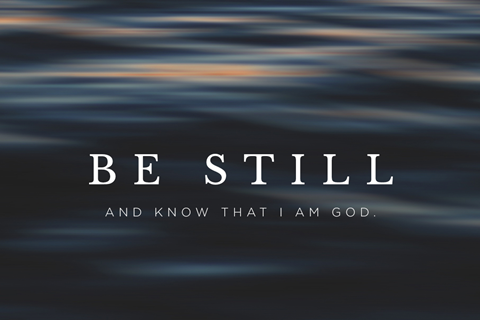Emma Hide was horrified to find that the Christian retreat she’d booked was actually four days of silence. But embracing the quiet revealed more than she could have imagined

Imagine booking a relaxing coastal getaway, only to discover that you’d unintentionally signed up for a four-day silent retreat. Would the prospect fill you with excitement or dread? When this exact scenario happened to me this January, my initial reaction was the latter!
Overwhelmed and seeking respite, I booked a retreat hoping to make some difficult decisions away from the distractions of daily life. The prospect of solitude doesn’t really appeal to me, so I intentionally chose a Christian retreat centre expecting to meet people and potentially make some new friends. So imagine my surprise when, upon arrival, I learned that my fellow guests were observing a strict 30-day silent retreat. And that I, too, was on a silent retreat of my own.
When we dare to move beyond distractions and be still before God, it opens us up to new ways of knowing and experiencing him
But despite the unexpected silence, I’ve come to believe that my time at the centre was no accident. God began to speak to me in new, powerful ways.
An uncomfortable silence
In our modern society, silence and stillness makes many of us uncomfortable. We do anything to avoid being alone with our thoughts: mindlessly scrolling through social media, turning on the TV for company or constantly responding to messages - even in our most private moments (any bathroom scrollers out there?)
Psychologists have highlighted the negative effects of our addiction to digital stimulation and busyness on our mental health. But we rarely discuss the impact of perpetual activity on our spiritual wellbeing. Our craving for busyness and noise sometimes makes spending even five minutes alone with God a significant challenge, let alone four days.
For much of my Christian life, I was not even aware that simply being with God was integral to my relationship with him. Coming from a vibrant, charismatic church tradition where I was constantly engaged in various activities, contemplative practices felt foreign to me. Even when spending time alone with God, I was still ‘doing’ - whether studying my Bible, presenting prayer requests or planning something for church. There was no time for rest and stillness.
Lost and lonely
During the initial days of my retreat, I felt lost. I occupied myself by exploring, engaging in conversations with friendly café staff nearby and calling friends and family. I dreaded returning to the silence and solitude of the centre.
But why? Silence compelled me to face reality: my thoughts, feelings and those dreaded decisions. This was far more uncomfortable and intimidating than mindlessly scrolling on social media or engaging in a phone call.
But, with the guidance of a Catholic sister, I began to embrace solitude with God in a new way. She listened carefully to my life circumstances and introduced me to simple spiritual exercises and prayers. These practices involved reflecting on God’s faithfulness throughout my life, immersing myself in gospel stories whilst interacting with Jesus, and discerning God’s work in my daily activities.
Focussing on God
To begin with, I found it almost impossible to focus my mind. However, God was full of grace and, as I persevered, these exercises opened the door to stretches of peaceful communion with God. His presence and love were such a gift in a time of deep confusion and uncertainty.
God also gave me pictures and words that related directly to my situation, helping me move forward in my decision making. I could hardly believe that God was speaking to me personally!
Perhaps most profound was a picture I had of Jesus holding my hand and taking a single step up a mountain. At a time when I felt alone and overwhelmed, this reminded me that God is always with us, and never forsakes us in times of need. This empowered me to tackle one difficult decision at a time. The picture also began to free me from a fear of the future. I knew the almighty God of love was with me. It was the most peaceful I had felt in months - maybe even years.
We rarely discuss the impact of perpetual activity on our spiritual wellbeing
What I experienced on my silent retreat is encapsulated by the Bible verse: “Be still and know that I am God” (Psalm 46:10). When we dare to move beyond distractions and be still before God, it opens us up to new ways of knowing and experiencing him. It’s not about whether God speaks to us, but whether we can quiet ourselves sufficiently to recognise his presence and hear his voice. Cultivating stillness is difficult, and requires practice, but we serve a faithful God who responds to hungry, genuine hearts.
Since the retreat, I’ve faced the challenge of finding time and space for stillness in daily life. Journeying with like-minded friends, seeking guidance from a mentor, and reading about contemplative practices have been invaluable. I’d strongly recommend Ruth Hayley Barton’s Invitation to Solitude and Silence: Experiencing God’s transforming presence and Tim Borst’s Coming to God in the Stillness: Discovering the power of contemplative prayer.
I’ve found that even just ten minutes a day of stillness has begun to transform the way I relate to God, myself and the world around me. I endeavour to spend more and more time this way - maybe someday I’ll even be ready for another silent retreat!
My question to you is: what might God want to reveal to you in the stillness?





































